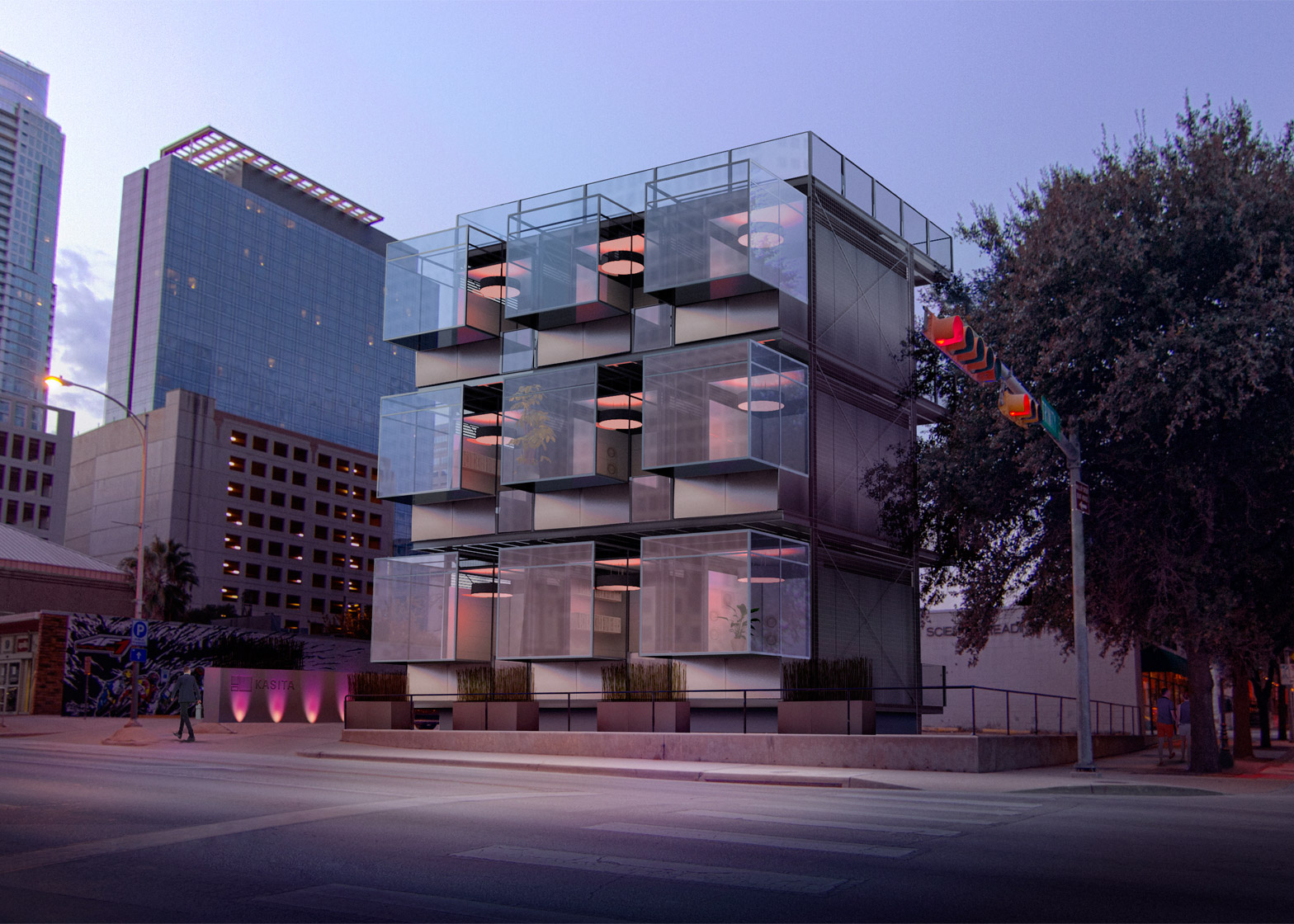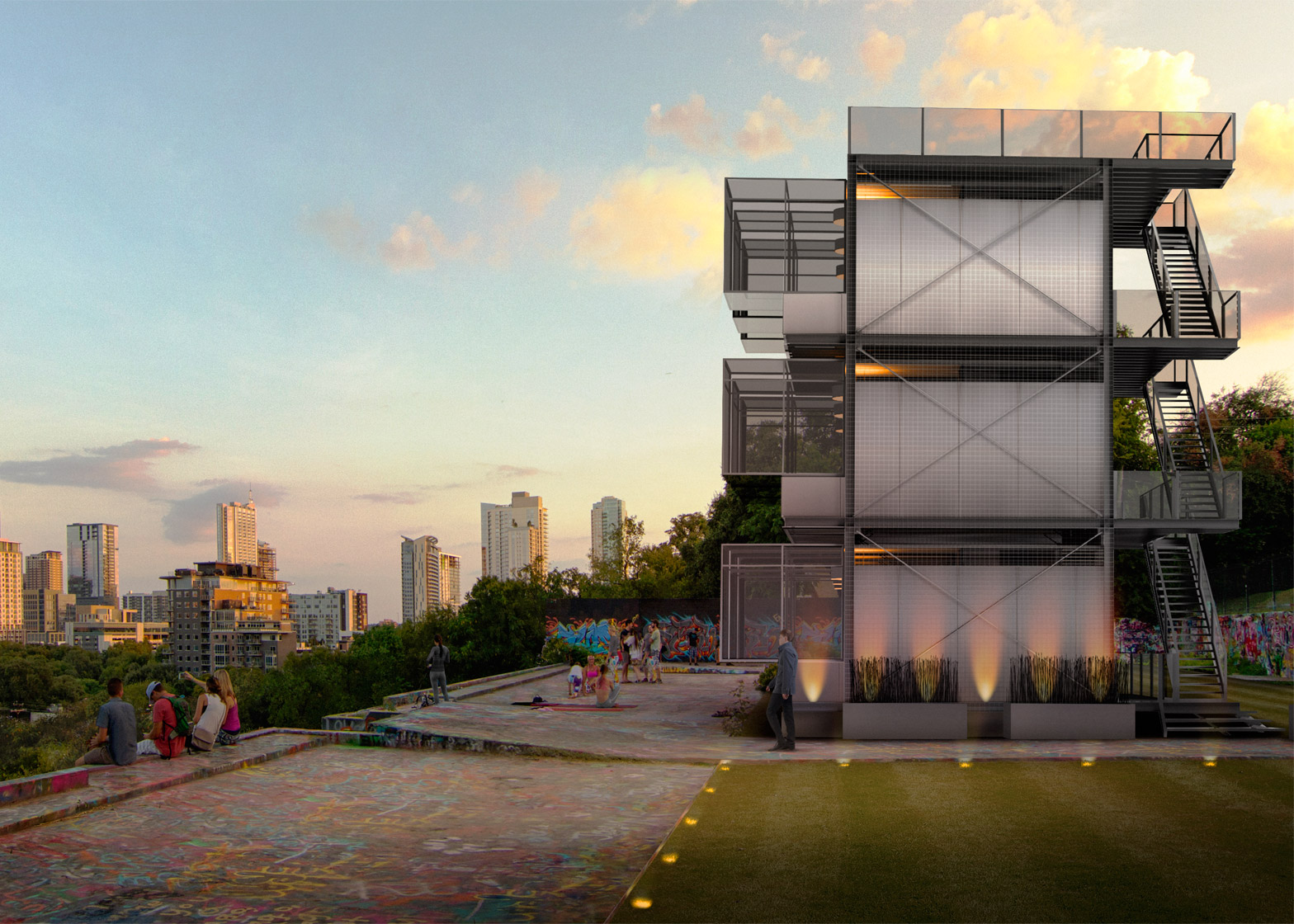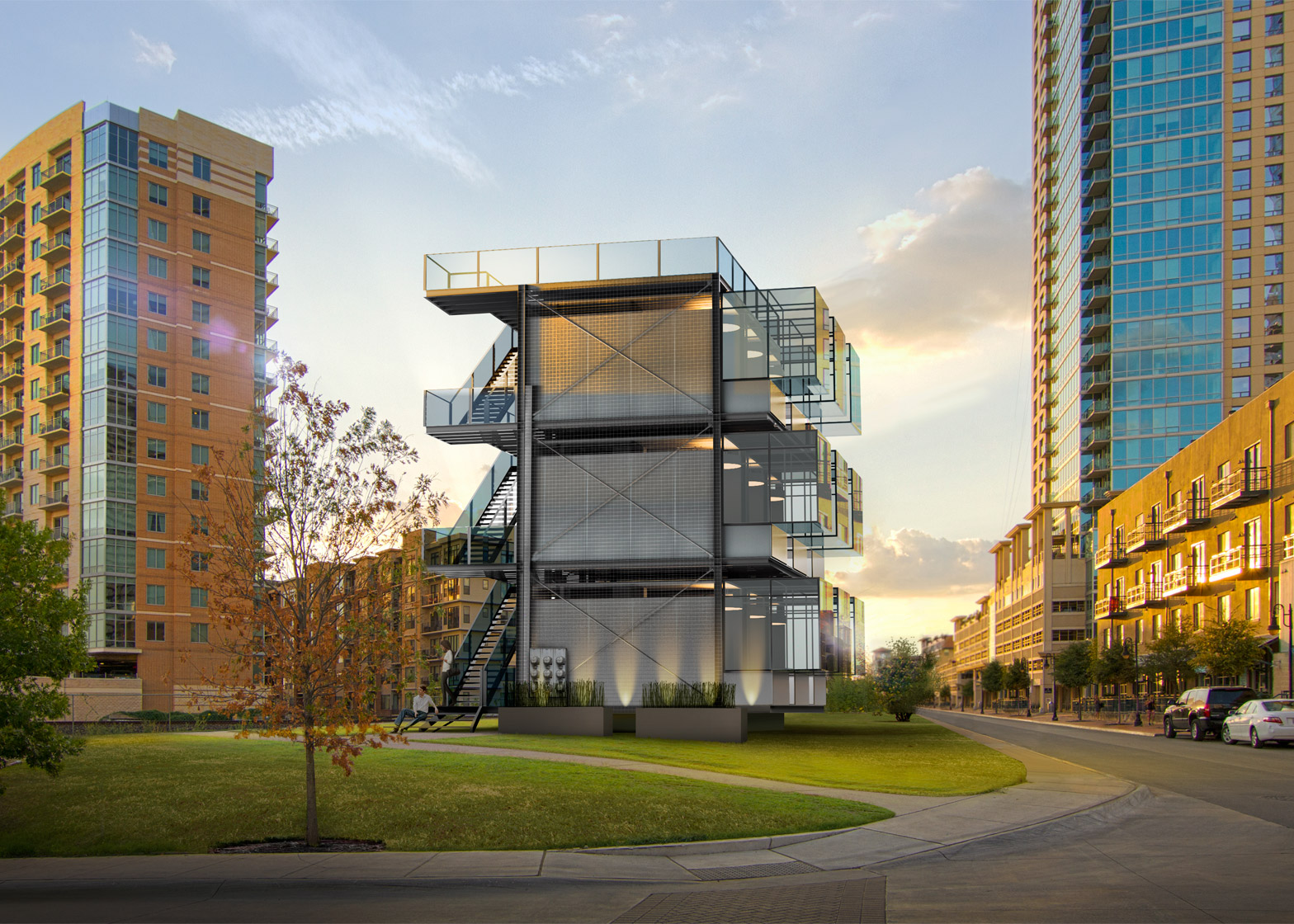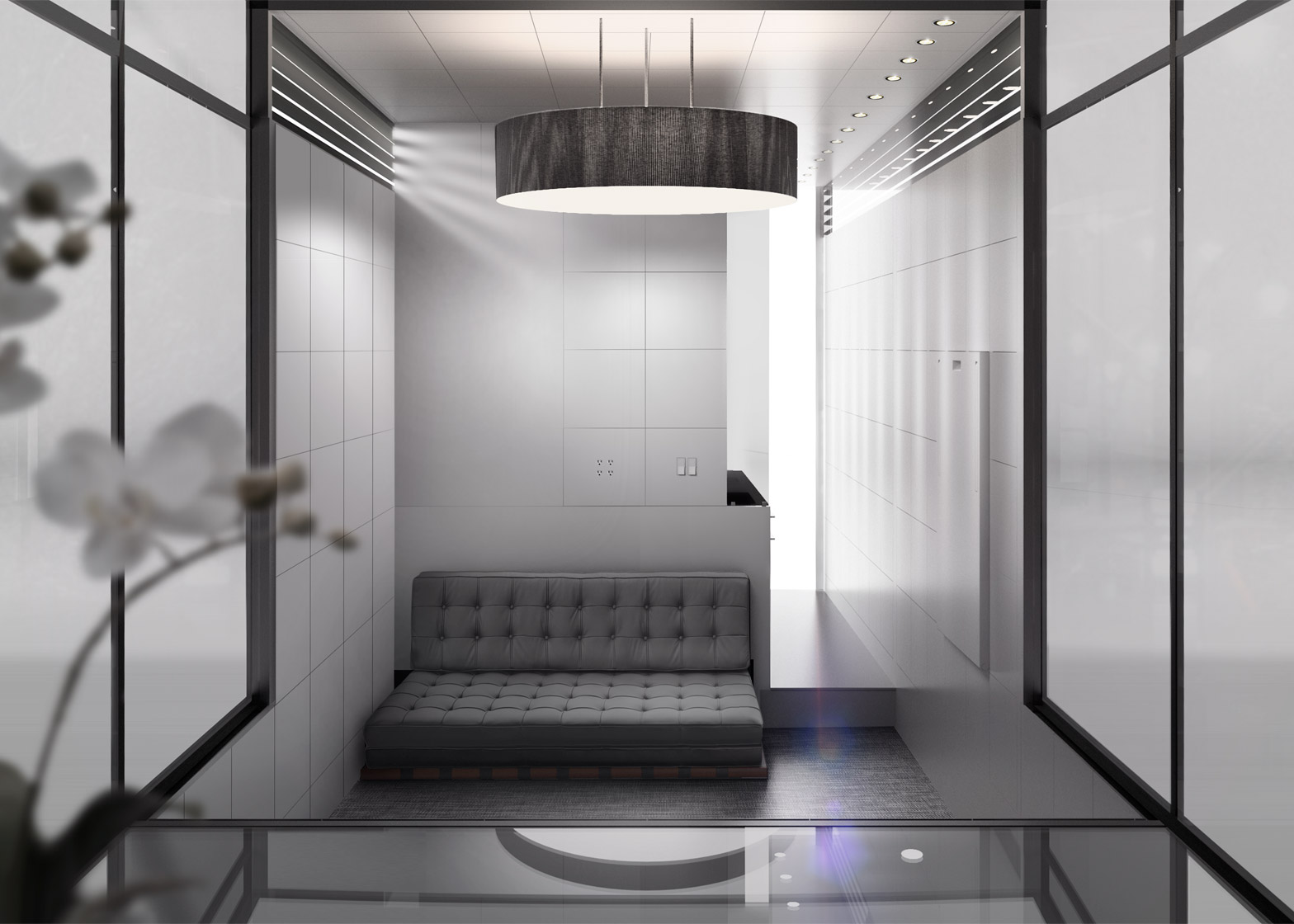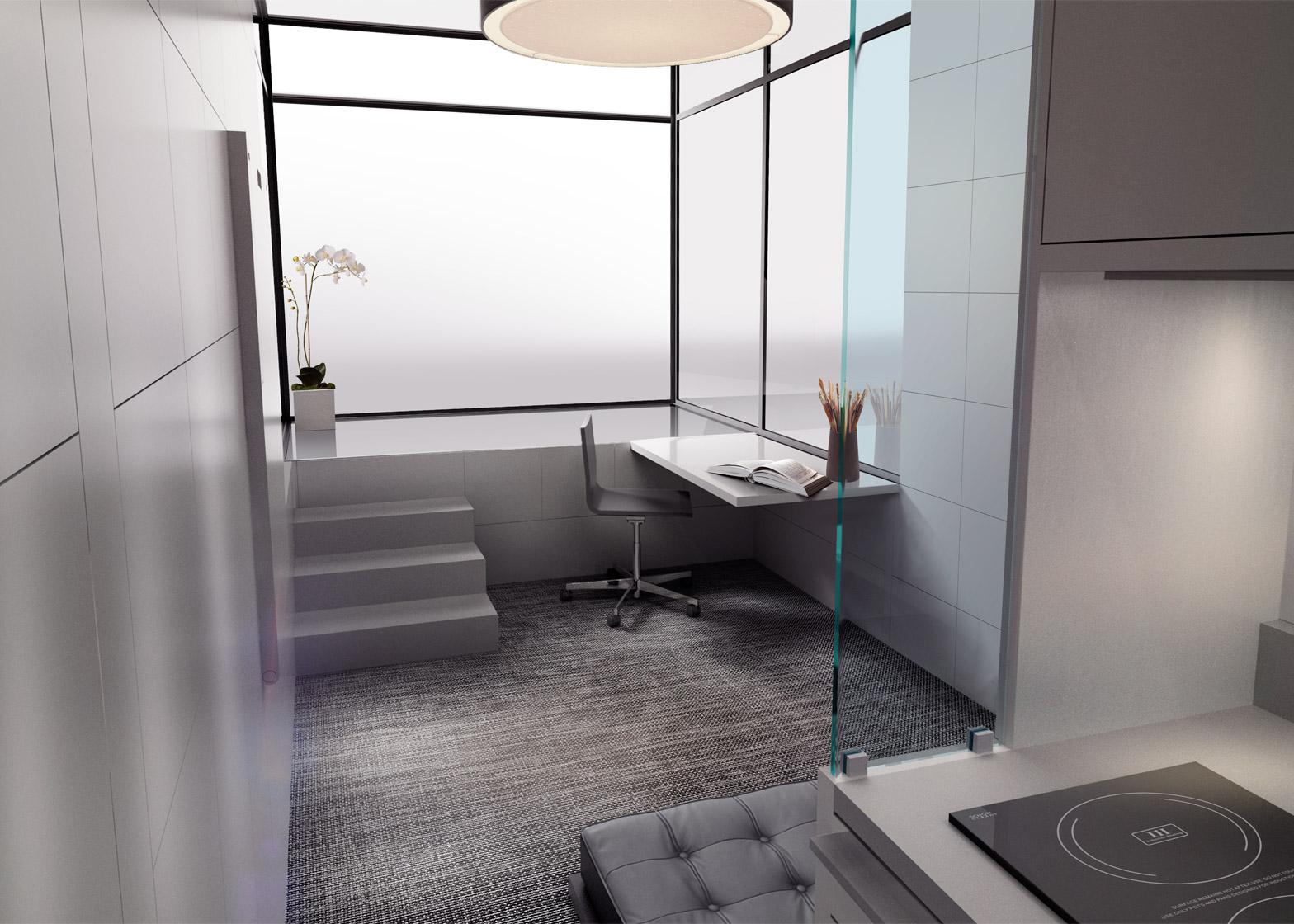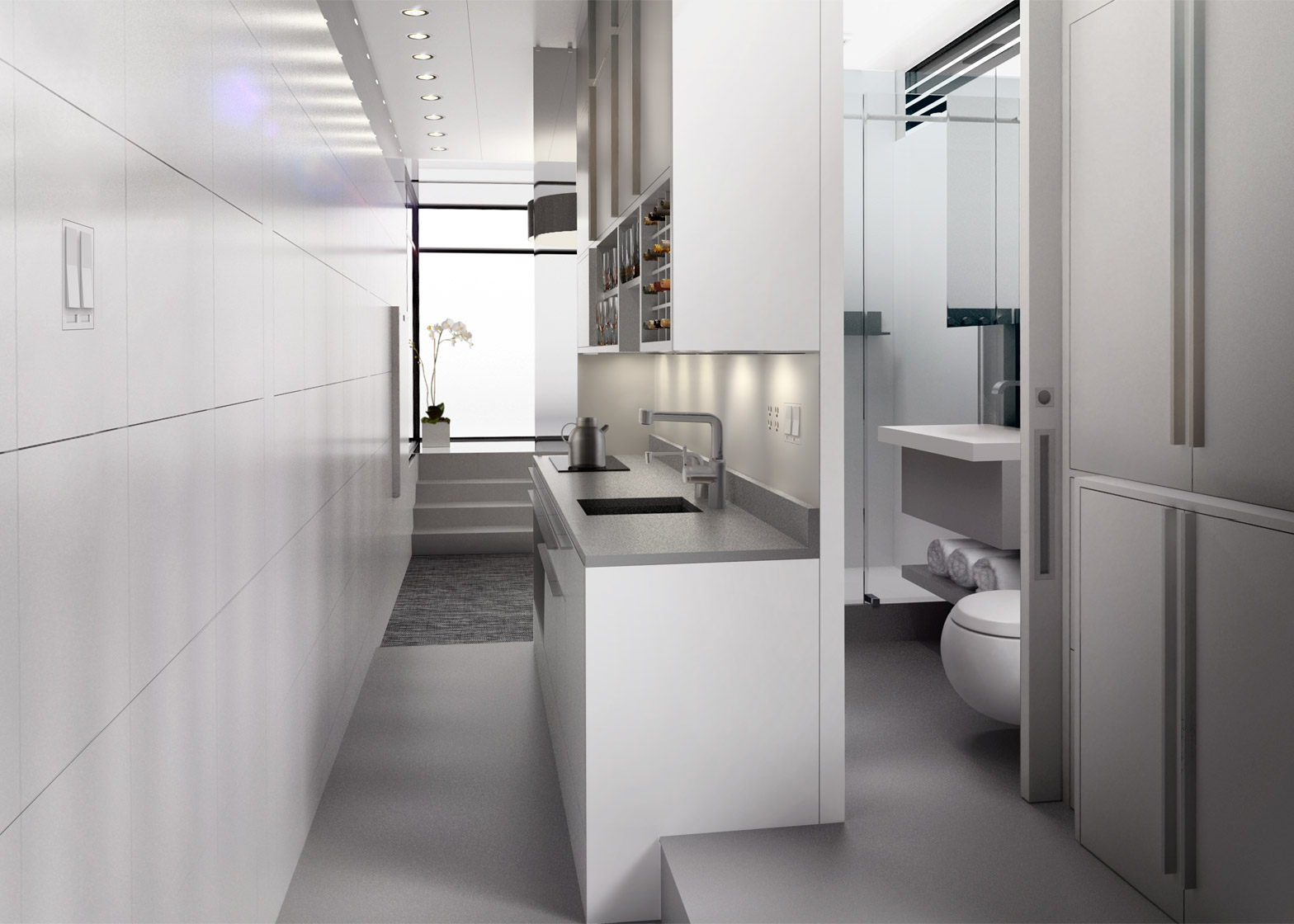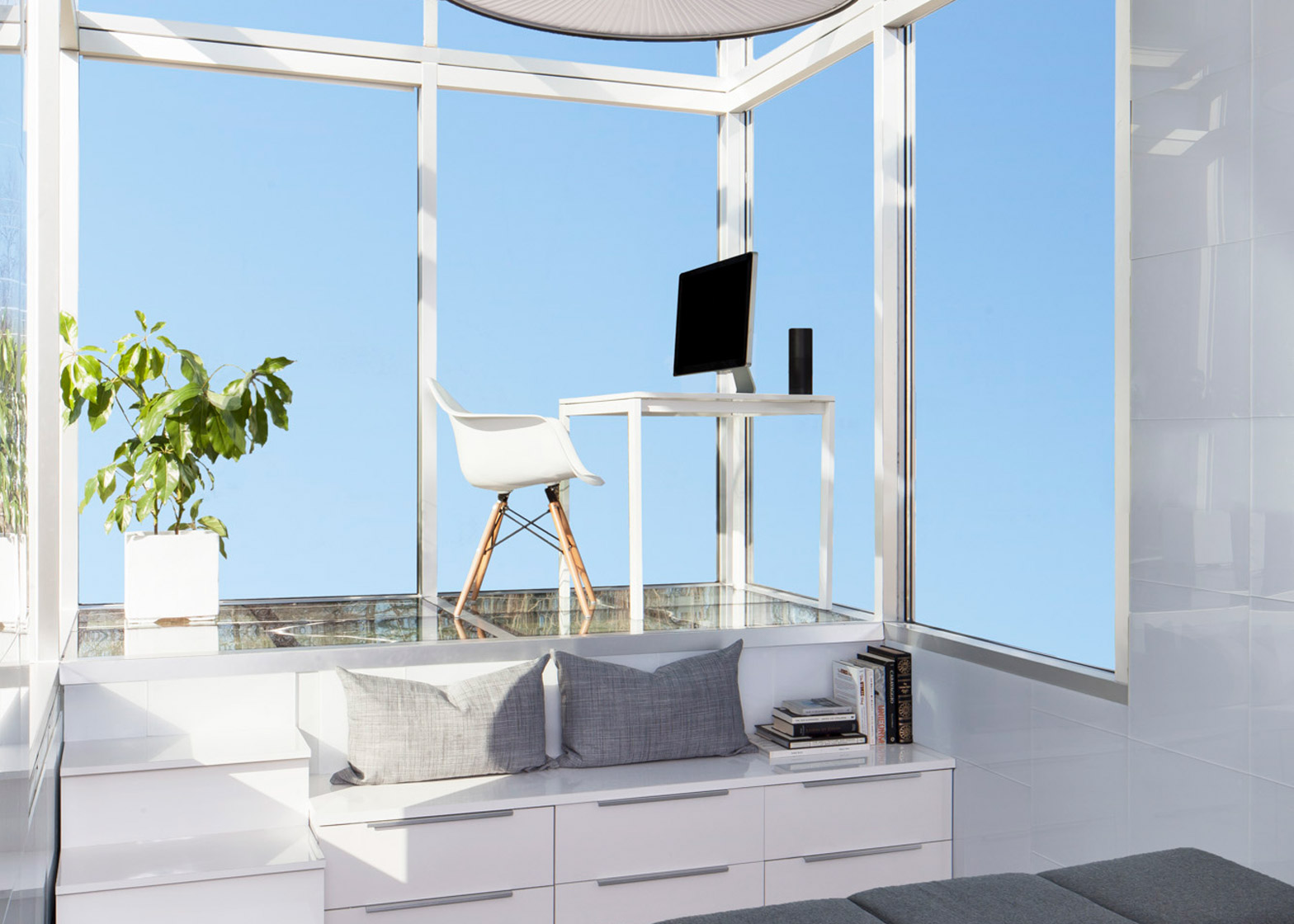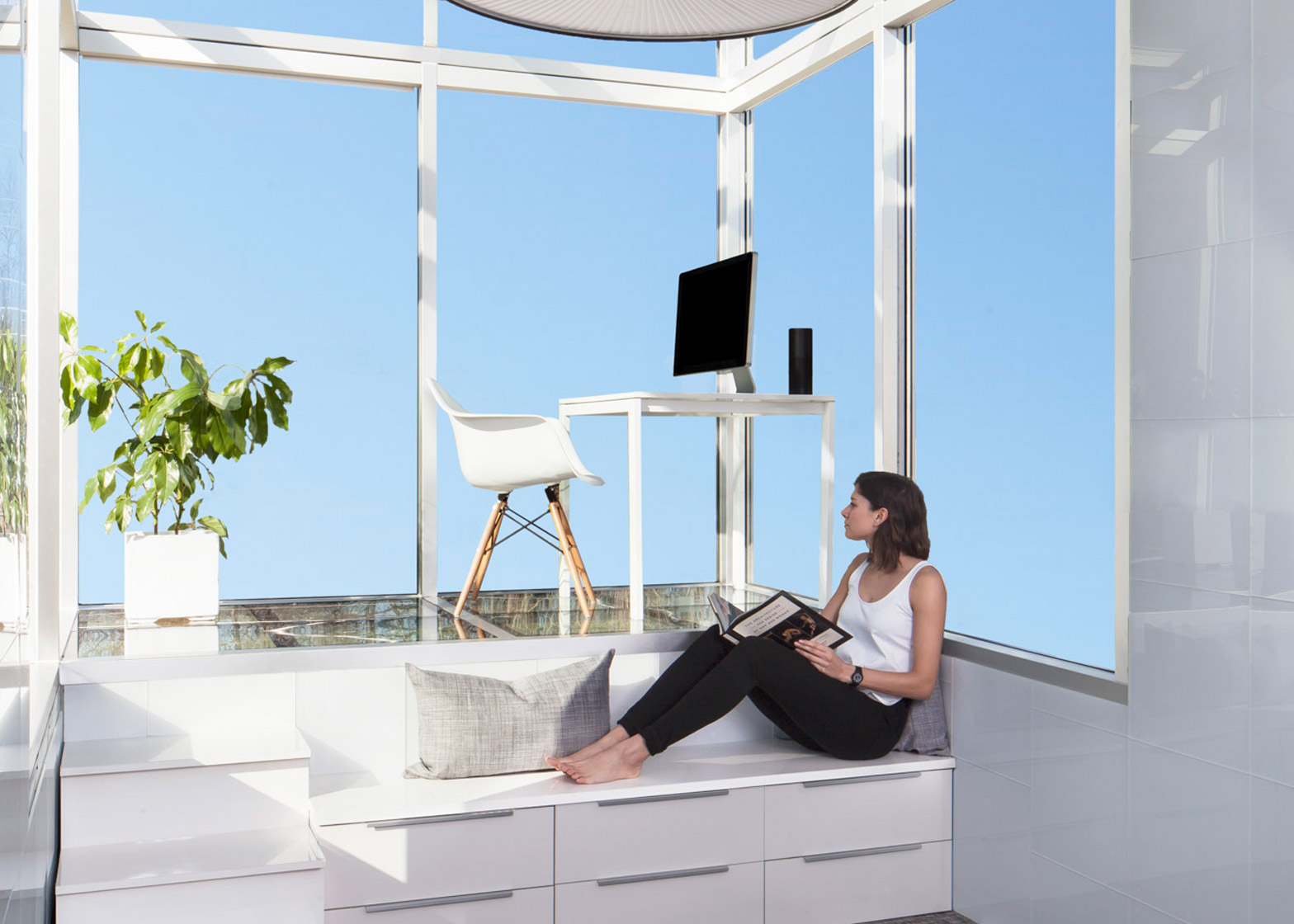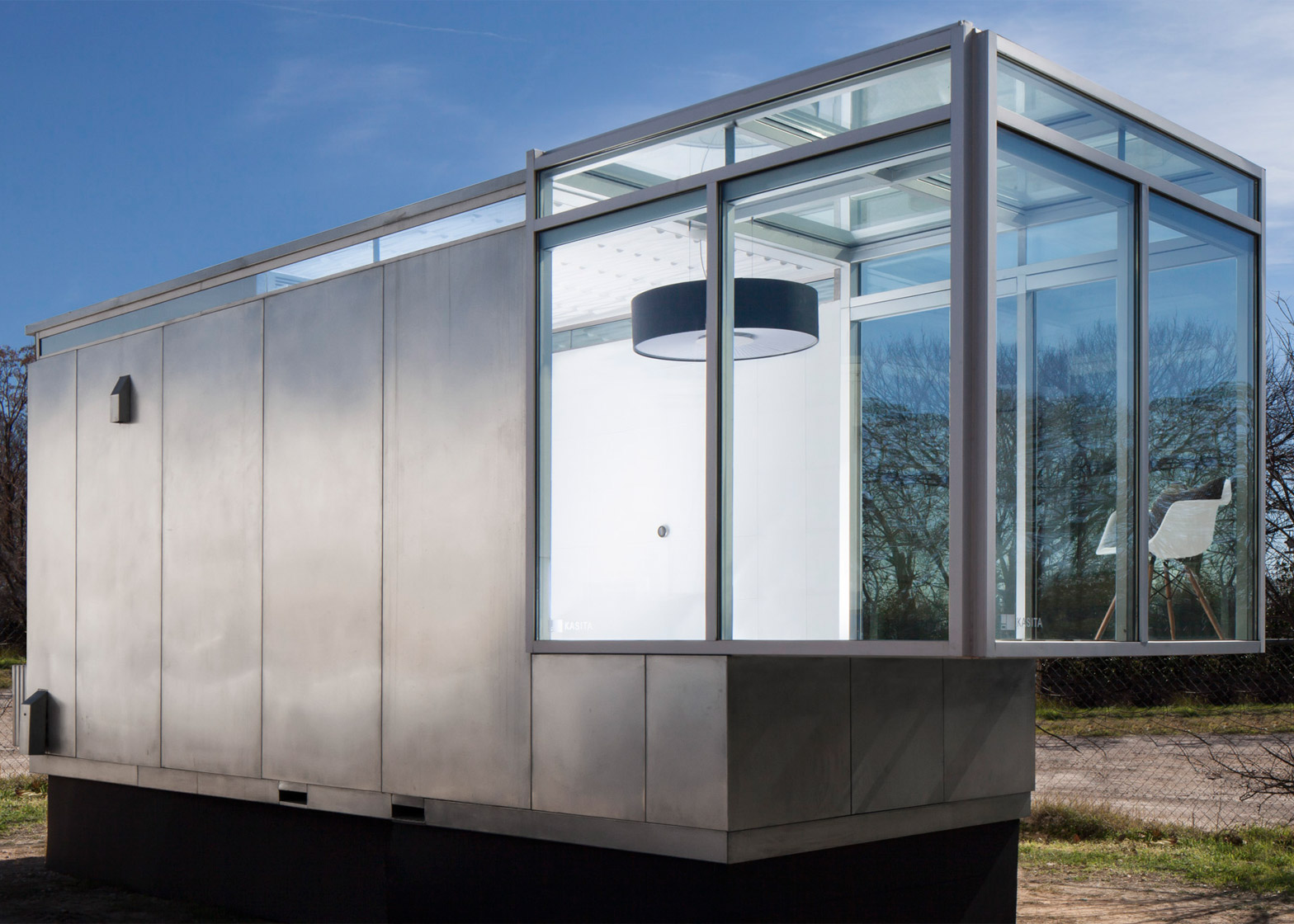Austin-based startup Kasita has created a prototype of a prefabricated micro dwelling that can be slotted into a framework like a bottle into a wine rack (+ slideshow).
The micro-housing startup called Kasita – adapted from the Spanish word for a small house – was launched by a professor-turned-entrepreneur who once lived in a dumpster.
At the South by Southwest conference in March 2016, the company unveiled its first dwelling: the 319-square-foot (30 square metres) Model One house.
The mobile structure is a rectilinear pod clad in metal and glass, with one side featuring a cantilevered glazed box.
It is intended to slot horizontally into an engineered steel frame, or "rack", which can include many units stacked high and wide.
Designed to be assembled in under a week, each Kasita would be able to swap between different racks.
Owners with mobile lifestyles could contact the company to have the home transported to a new location, using a crane and flatbed truck.
Once in place, the home would tie into city utilities via a special docking technology. "The utilities are distributed throughout the rack to each individual Kasita," the company said.
The house would come equipped with smart-home technology that can be controlled by a mobile app.
Features include a smart thermostat by Nest – the domestic technology company that Google acquired in 2014 – and a voice-controlled Echo speaker by Amazon.
The design also calls for wireless LED lighting system and electrochromic windows that automatically turn from opaque to transparent, depending upon the outdoor lighting conditions.
The open-plan interior has 10-foot-high ceilings (three metres). The kitchen offers standard amenities such as a dishwasher, an induction cooktop and a convection oven, while the sleeping area is fitted with a queen-sized mattress.
The company is working to develop wall panels that will accommodate shelving, bike racks and storage.
"Kasita is designed for a variety of individuals at different places in their life," the company said. "From college kids in need of student housing, to urban millennials, to those enjoying retirement – Kasita is the perfect home."
The company hopes to attract developers, who can purchase multiple units and stack them up to 10 stories high.
"Not only are Kasita homes for individuals, or the answer for the urban housing crisis, but Kasitas can also serve as rapid-reusable crisis housing, event housing or a space to have the grandparents closer to the kids," the company said. "We're still dreaming up the ways they'll be used."
The company was founded by Jeff Wilson, a former environmental studies professor at Huston-Tillotson University in Austin. Wilson spent several years working for IBM in California in the last 1990s, during the dot-com boom.
For a year, from 2014 to 2015, Wilson lived in a modified trash dumpster in Austin, which led him to start Kasita. Called The Dumpster Project, the experiment was meant to explore sustainable practises and new ways of living.
"Small living led Wilson to reimagine what a comfortable home could be – especially in a growing city in need of affordable, urban housing," Kasita states on its website. "He took all the best elements of dumpster life – more from less, beautiful design, and smart technology – and conceptualised a dream space."
The company intends to start taking orders from customers this year, according to its website. Pricing has not yet been released.
This animation demonstrates the concept behind Kasita's micro-home startup
Kasita is part of a growing tiny-house movement, which advocates living simply in small structures.
Other micro dwellings include cabins designed by Harvard students for stressed-out city dwellers and a pair of wooden dwellings in a Japanese village. A San Francisco-based company recently unveiled a prefabricated tiny house that comes shipped to the site in flat-packed boxes.
Photography is by Andrea Calo.

